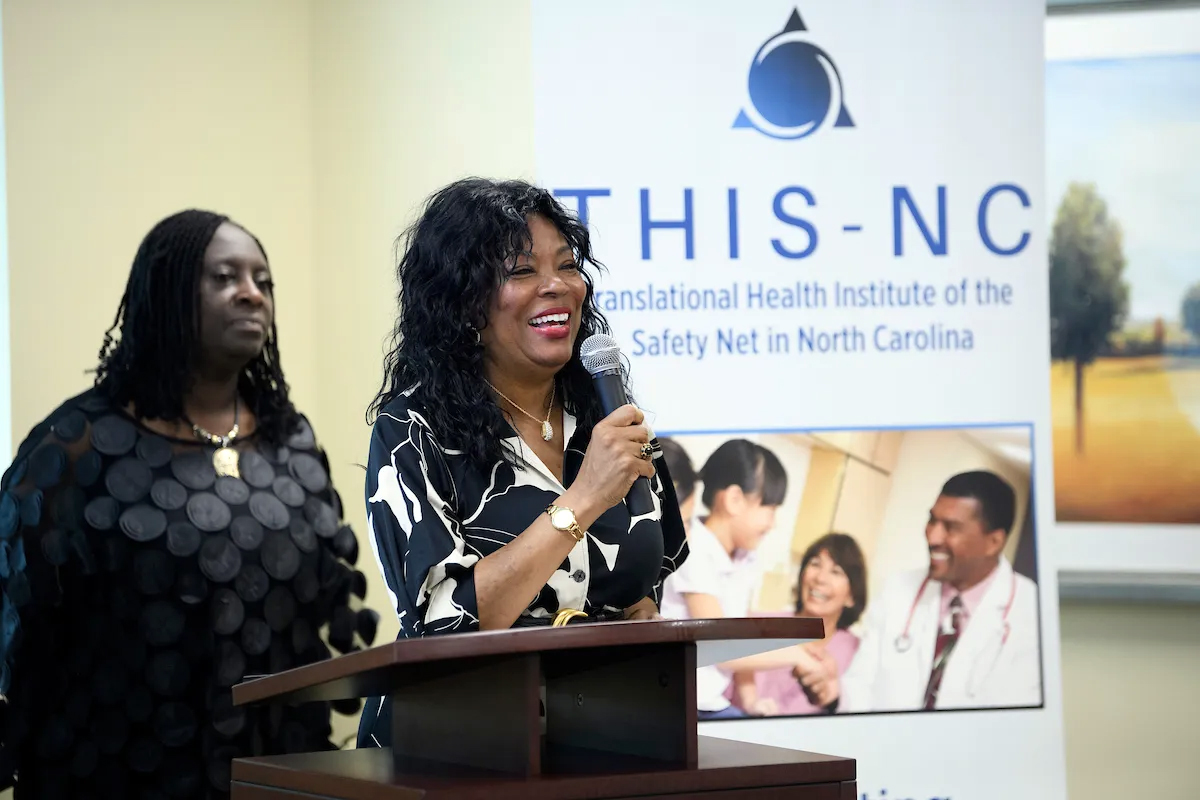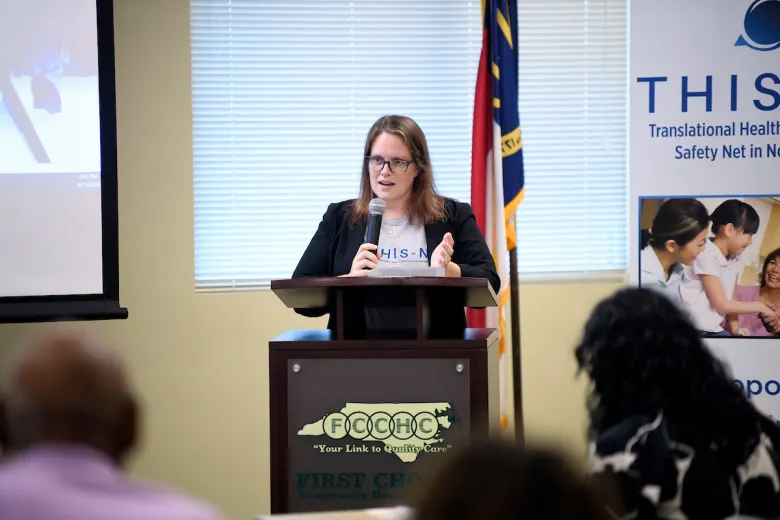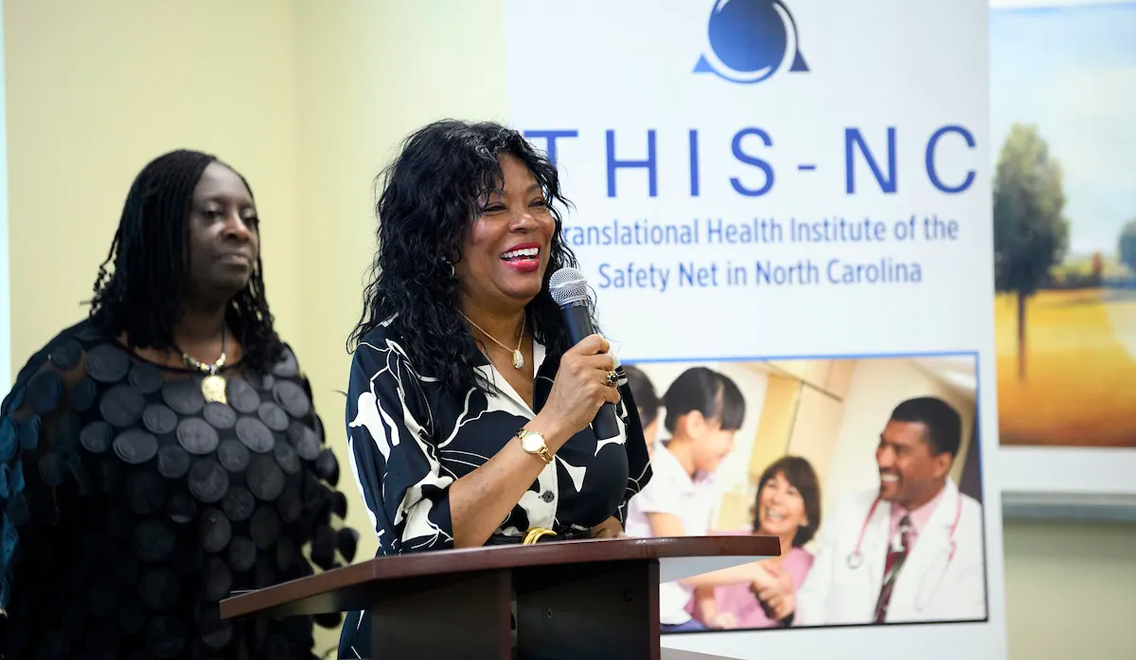Coalition Aims To Diversify Clinical Trials By Engaging Marginalized Communities
Communities of color, low-income groups, and other marginalized populations are often at higher health risks but remain underrepresented in clinical trials and medical studies that guide healthcare practices. This underrepresentation can contribute to disparities in healthcare outcomes, a reality that Chris Shank, president and CEO of the North Carolina Community Health Center Association, has experienced firsthand.
“When I got sick two and a half years ago, my doctor prescribed a medication, but he wasn’t sure if it would work for me because no people of color had been included in the research,” Shank, who is Black, shared in a recent interview.

Shank’s organization is now part of THIS-NC (Translational Health Institute of the Safety Net in North Carolina), a new coalition launched in August with the goal of making healthcare research more inclusive. By partnering with “safety net” providers who work directly with underserved communities, THIS-NC aims to bridge the gap in clinical trials for historically underrepresented groups.
Organizations involved with THIS-NC include North Carolina Central University, the North Carolina Rural Health Leadership Alliance, and the North Carolina Association of Free and Charitable Clinics. April Cook, CEO of the latter organization and chair of THIS-NC’s board, highlighted the importance of reaching these populations, many of whom are uninsured and lack a voice in healthcare research.
“They face complex challenges daily but are often excluded from the research,” Cook said. THIS-NC hopes to change that by conducting clinical trials and studies within communities through trusted local providers, improving healthcare equity and outcomes.
Building trust

Becca Hayes, director of health research equity for the North Carolina Community Health Center Association, emphasized that one of THIS-NC’s key objectives is to encourage federal agencies to allow safety net providers to host clinical trials. “The FDA and NIH recognize the lack of diversity in clinical trials as a significant barrier, but they haven’t found an effective solution,” Hayes explained, referencing the Food and Drug Administration and the National Institutes of Health. “Instead of introducing new programs or providers, why not support the resources already in place that have been here for decades?”
However, the coalition understands that simply making clinical trials more accessible to underrepresented groups doesn’t guarantee participation. Hayes acknowledged that “mistrust” of medical research is common in marginalized communities, particularly among people of color. This mistrust has historical roots in unethical medical experiments, such as the infamous Tuskegee Syphilis Study on Black men and the unauthorized use of Henrietta Lacks’ cancer cells in research without consent or compensation.
To address this, Hayes said the coalition aims to educate patients about the legal protections now in place to safeguard trial participants from unethical practices. “We want to ensure the community understands their rights, the risks, and the benefits, so they can make informed decisions about participation,” she said.
Working together
Deepak Kumar, a cancer biologist and health equity researcher at North Carolina Central University, explained that THIS-NC originated from a $1.1 million grant the school received from the NIH in 2022. The grant’s purpose was to establish a research network in the state’s free clinics and federally qualified health centers with a focus on equity. Through this collaboration, the university, along with associations representing the centers and clinics, began exploring ways to collectively address systemic inequities in health research.
Kumar emphasized the importance of collaboration, stating, “We don’t have billions of dollars, but we hope that by joining forces, we can at least have a seat at the table and advocate for our population.” He also noted that THIS-NC has received a positive response from federal agencies and government officials.
According to Cook, members of the coalition share the sentiment of excitement for various reasons. She mentioned, “It’s very exciting for different reasons, depending on whose perspective you’re considering. It’s exciting for the researchers and certainly for our providers, practitioners, and clinics at the grassroots level.”
Getting started
Becca Hayes shared that THIS-NC has received funding from the FDA to “develop a national curriculum for safety net providers” interested in hosting clinical trials and medical studies. The curriculum is set to launch locally in North Carolina before expanding to providers in other states.
“We’re still in that labor-of-love phase,” Hayes said. “We’re seeing success and gaining momentum, but this is our first attempt. We’re documenting what’s working and what isn’t so that we can become a model for others who want to try this.”
While it’s still uncertain what types of trials and studies will emerge from THIS-NC or how receptive patients will be to participation, Cook is optimistic. She believes that the providers within the coalition are uniquely positioned to reach communities historically overlooked in health research.
“Conducting a study in a safety net where people already trust us will open doors that we haven’t been able to open before,” Cook said.
Becca Hayes, director of health research equity for the North Carolina Community Health Center Association, during a kickoff event for THIS-NC.
This article first appeared in QC Metro


